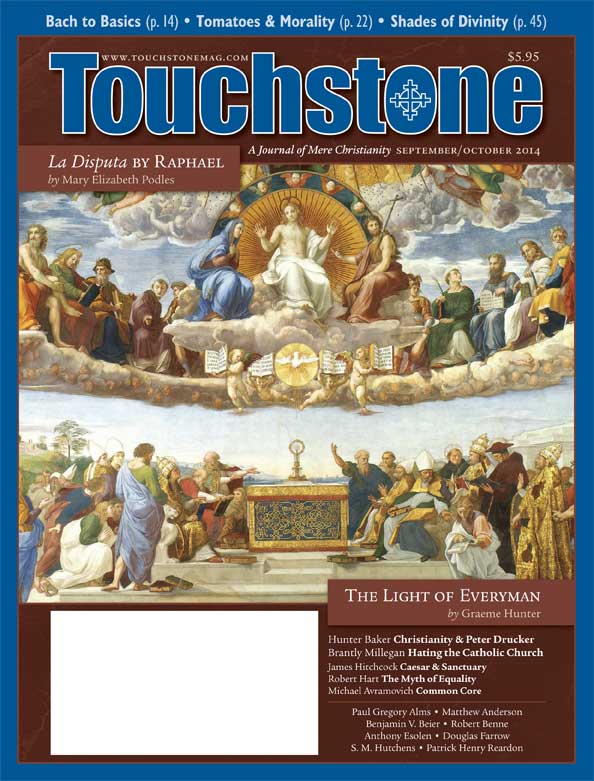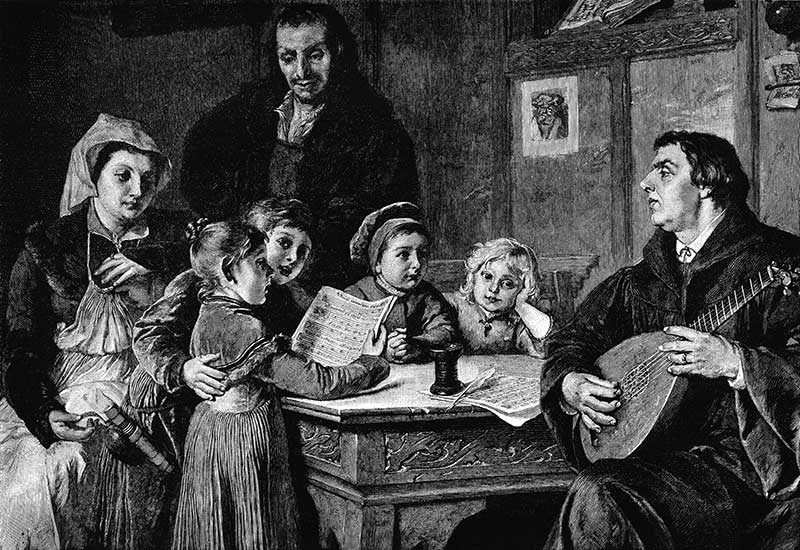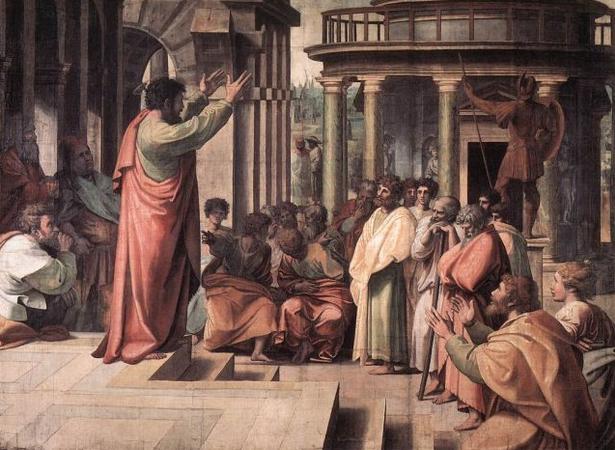Editorial
Eyeing the Sanctuary
Freedom for Churches Affirmed . . . For Now
by James Hitchcock
The four-column headline in a secular newspaper warned that "Mormon Women's Group Founder Faces Excommunication," conveyed with about the same sense of alarm that might be used to forecast an imminent hurricane.
But while readers could batten down against the storm, there was absolutely nothing they could do to help the Mormon woman. And indeed, why should the newspaper think they might want to, or that they might even be interested in a religion with which few have direct contact and to which even fewer belong? The answer is that such alarmism is part of a threat to religious freedom that is generally not recognized.
For almost 150 years the Supreme Court has followed the principle that, where internal church disputes are concerned, the issue should be resolved according to the governing laws of the church itself. Arguably this is the single most important protection for religious freedom that the Constitution provides. For the courts to require the Church of Jesus Christ of Latter Day Saints to ordain women would be to violate that church's freedom, but the American commitment to religious liberty is still strong enough to insure that such will not happen in the foreseeable future.

Not Laws Only
But freedom is not a matter of laws only; it also involves society and culture. The revolution in the status of ex-slaves wrought by the Civil War was to a great extent thwarted by prevalent attitudes that made it virtually impossible for African Americans to claim the rights newly guaranteed them. Perhaps most devastating, the burden of the culture was precisely to reinforce the belief that African Americans did not deserve those rights. The Civil Rights Movement of the 1960s would have had very limited effect if popular attitudes towards race had not changed simultaneously, probably in part because of changes in the law.
Much of the media's treatment of religion follows a totally predictable "grand narrative"—brave and enlightened church members struggling against reactionary ecclesiastical establishments. Thus the Associated Press reported that the Mormon woman, Kate Kelly, was "shocked, dismayed, and devastated by her excommunication," after she had "attempted to shed light on gender inequalities in religion." A male Mormon, John P. Dehlin, suffered the same fate for his "outspoken support of LGBT people."
Kelly not only expressed opinions at odds with Mormon teaching; she actively attempted to subvert the ecclesiastical integrity of the church by trying to lead a group of women into a closed meeting of Mormon elders in the Temple in Salt Lake City, then announcing that she would not participate in the hearing about her excommunication, because it is "both cowardly and unchristlike."
But there is good news for Ms. Kelly—over a period of 350 years conditions have so changed in North America that, unlike Anne Hutchinson or Mary Dyer, she is free to renounce her church, shout herself hoarse condemning its teachings, and even to start her own religion. Why is that not enough?
Individual but not Ecclesiastical Autonomy
The answer is that the liberal mind has come to regard freedom of religion as applying entirely to individuals, not churches. Although the principle of ecclesiastical autonomy survives in law, the liberal culture continually seeks to undermine it by its David-and-Goliath narrative of religious disputes. Since the liberal mind cannot recognize any religious teaching as authoritative, the only valid issue in such controversies is the conscience of the individual. To affirm that churches as such have rights is to place limits on the autonomous self.
But a church that cannot define its own doctrines, and cannot determine who is a member in good standing, is not free, which is precisely the liberal intention. Organized religion is tolerable—and may even be seen as valuable—insofar as it simply endorses the secular liberal consensus, which is exactly what the liberal churches have been doing for some time. But organized "conservative" religion is a moral rival to that consensus, which is why things like the Supreme Court's Hobby Lobby decision provoke such liberal hysteria.
As a movement, liberalism reluctantly affirms freedom of religion in the legal sense, while at the same time it seeks to discredit conservative religion in such a way that believers can claim such freedom only at an ever-increasing social and personal cost. Liberals actively seek to arouse prejudice against conservative believers, and it is a testimony to the vitality of conservative religion that it is still a major moral force even though the media, much of the educational system, and the judiciary (below the level of the Supreme Court) have declared it to be untenable.
Antipodal Moral Imperatives
It might seem ironic that the Supreme Court of the 1870s was upholding ecclesiastical autonomy at the exact moment it was also imposing draconian penalties on the Mormons because of polygamy. But polygamy was not an internal Mormon issue (it became one later). It was forbidden by the Court as a violation of a transcendent moral imperative. That imperative was reaffirmed by the Court as late as 1946, but the next time the issue arises, the decision will probably be quite different.
The American practice of religious liberty is the most robust in the world, but liberals look wistfully at the erosion of such freedom in other Western countries. The moral imperative against polygamy in 1878 is now becoming a moral imperative against the substance of Christian belief. •
James Hitchcock is Professor emeritus of History at St. Louis University in St. Louis. He and his late wife Helen have four daughters. His most recent book is the two-volume work, The Supreme Court and Religion in American Life (Princeton University Press, 2004). He is a senior editor of Touchstone.
bulk subscriptions
Order Touchstone subscriptions in bulk and save $10 per sub! Each subscription includes 6 issues of Touchstone plus full online access to touchstonemag.com—including archives, videos, and pdf downloads of recent issues for only $29.95 each! Great for churches or study groups.
Transactions will be processed on a secure server.
more from the online archives
calling all readers
Please Donate
"There are magazines worth reading but few worth saving . . . Touchstone is just such a magazine."
—Alice von Hildebrand
"Here we do not concede one square millimeter of territory to falsehood, folly, contemporary sentimentality, or fashion. We speak the truth, and let God be our judge. . . . Touchstone is the one committedly Christian conservative journal."
—Anthony Esolen, Touchstone senior editor











